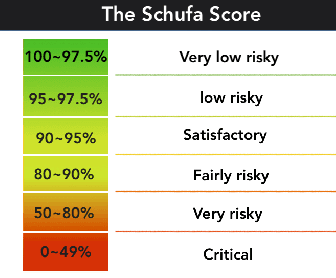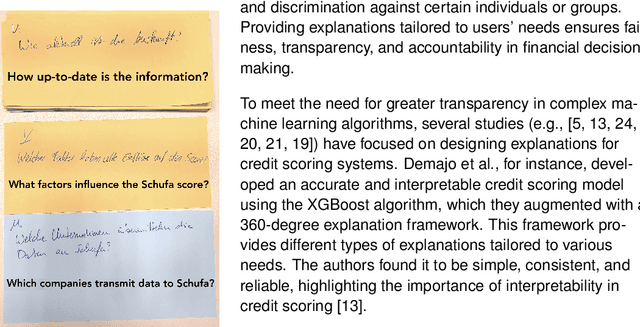Peeking Inside the Schufa Blackbox: Explaining the German Housing Scoring System
Paper and Code
Nov 22, 2023

Explainable Artificial Intelligence is a concept aimed at making complex algorithms transparent to users through a uniform solution. Researchers have highlighted the importance of integrating domain specific contexts to develop explanations tailored to end users. In this study, we focus on the Schufa housing scoring system in Germany and investigate how users information needs and expectations for explanations vary based on their roles. Using the speculative design approach, we asked business information students to imagine user interfaces that provide housing credit score explanations from the perspectives of both tenants and landlords. Our preliminary findings suggest that although there are general needs that apply to all users, there are also conflicting needs that depend on the practical realities of their roles and how credit scores affect them. We contribute to Human centered XAI research by proposing future research directions that examine users explanatory needs considering their roles and agencies.
 Add to Chrome
Add to Chrome Add to Firefox
Add to Firefox Add to Edge
Add to Edge